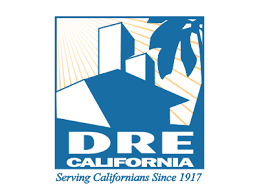|
Q&A: How to deal with an out-of-control property manager
BY DONIE VANITZIAN MAY 11, 2014 5 AM PT Question: I requested documents from our homeowners association. The manager wrote me on behalf of the board, repeatedly denying my request, stating the information I requested was about a situation “involved in litigation and according to California code” could not be provided to me. Because no lawsuits have been filed regarding this matter, I took the association to small-claims court asking for $500 for my denied request per the code. In court, the manager representing the board told the judge my request had been denied because the “matter was involved in litigation.” I testified I could find no lawsuit filed. I am appalled at the manager’s blatant lies both in and outside the courtroom. Two board directors were present at this trial and neither said a word about the manager lying to me about my requested matter being “in litigation” for the sole purpose of denying document requests. Instead the board continues to applaud her at meetings for “doing such a fabulous job of manager.” The majority of our 600 owners have ongoing complaints and problems with this manager and her company, and we don’t trust the board. Together they create an expensive and stressful living environment. We are plagued with graft, shady contractors, unsubstantiated utility assessments and vote-rigging by the culprits in order to stay in power. We’re exhausted by constant lawsuits and indiscriminate fees. There’s a storm brewing but even as a group we don’t have enough funds to hire an attorney to litigate. What can owners do to fix this? Answer: When the majority of owners have ongoing complaints and unresolved problems with the board and management, the manager is not doing “such a fabulous job.” A discontented majority should never sit back and continue to allow mismanagement. This manager and the board are a liability to the association and to titleholders responsible for funding its operations. All eyes are on the board and its failure to do its job by allowing, if not creating, the circumvention of laws meant to protect owners with assets at risk in that development. ADVERTISINGThe manager, in addition to intentionally misleading the court with her testimony, could jeopardize the board’s indemnification insurance. In court, the manager represents the association. If not checked, her statements and actions (that are within control of the board) are deemed ratified and approved by that same board. Such actions disenfranchise owners who have a vested interest in their property and may also result in more litigation. This ultimately proves costly to everyone as it is a waste of vital association resources and the court’s time. There’s more to being a board director than merely showing up and sitting through a meeting. Each director has an independent fiduciary duty to the association, which includes a good-faith duty to manage all vendors, including managers and management companies. This duty demands loyalty to the association consisting of careful oversight and supervision of the manager’s activities, as well as overt steps to reduce waste. If your board refuses to take appropriate action against an out-of-control manager, it is the duty of the owners to take action against a complacent and recalcitrant board. Where possible, owners should try to exhaust all administrative remedies before incurring attorney fees or resorting to litigation. As there are more titleholders than board directors, owners need to concentrate on taking back their community. Do this by focusing your efforts and banding together as a group for the common cause of bettering your living environment. The Los Angeles city attorney’s Dispute Resolution Program offers mediation and informal resolution assistance. The process is volitional, and both sides are encouraged and invited to participate. There is no cost for this service, and neither side needs to hire an attorney for representation. Mediators must pass enrollment qualifications, background checks and course requirements set forth by that department. They are professional and trained in group facilitation with a goal of resolving difficult situations where there may be several people, even large groups, requiring assistance or intervention, such as your homeowners’ group. This highly effective process strives for conciliation and mutual resolution. If criminal impropriety is uncovered during the process, it is referred to law enforcement. Contact Songhai Armstead, supervising attorney, at (213) 485-8324. Zachary Levine, partner at Wolk & Levine, a business and intellectual property law firm, co-wrote this column. Vanitzian is an arbitrator and mediator. Send questions to Donie Vanitzian JD, P.O. Box 10490, Marina del Rey, CA 90295 or [email protected]. https://www.latimes.com/business/realestate/la-fi-associations-20140511-story.html
0 Comments
Leave a Reply. |
Archives
July 2024
Categories
All
|
Locations |
KEYBOXDRE 02086236About Our Broker: Los Angeles native, with a Bachelor's and Master's from Stanford University.
California Real Estate Broker Exam Perfect Score. |
What Our Clients Are Saying"Keybox is a rare balance of both approachable and professional, always responds quickly and efficiently when I reach out, and I trust the Broker completely. Highly recommended!!" |

 RSS Feed
RSS Feed

